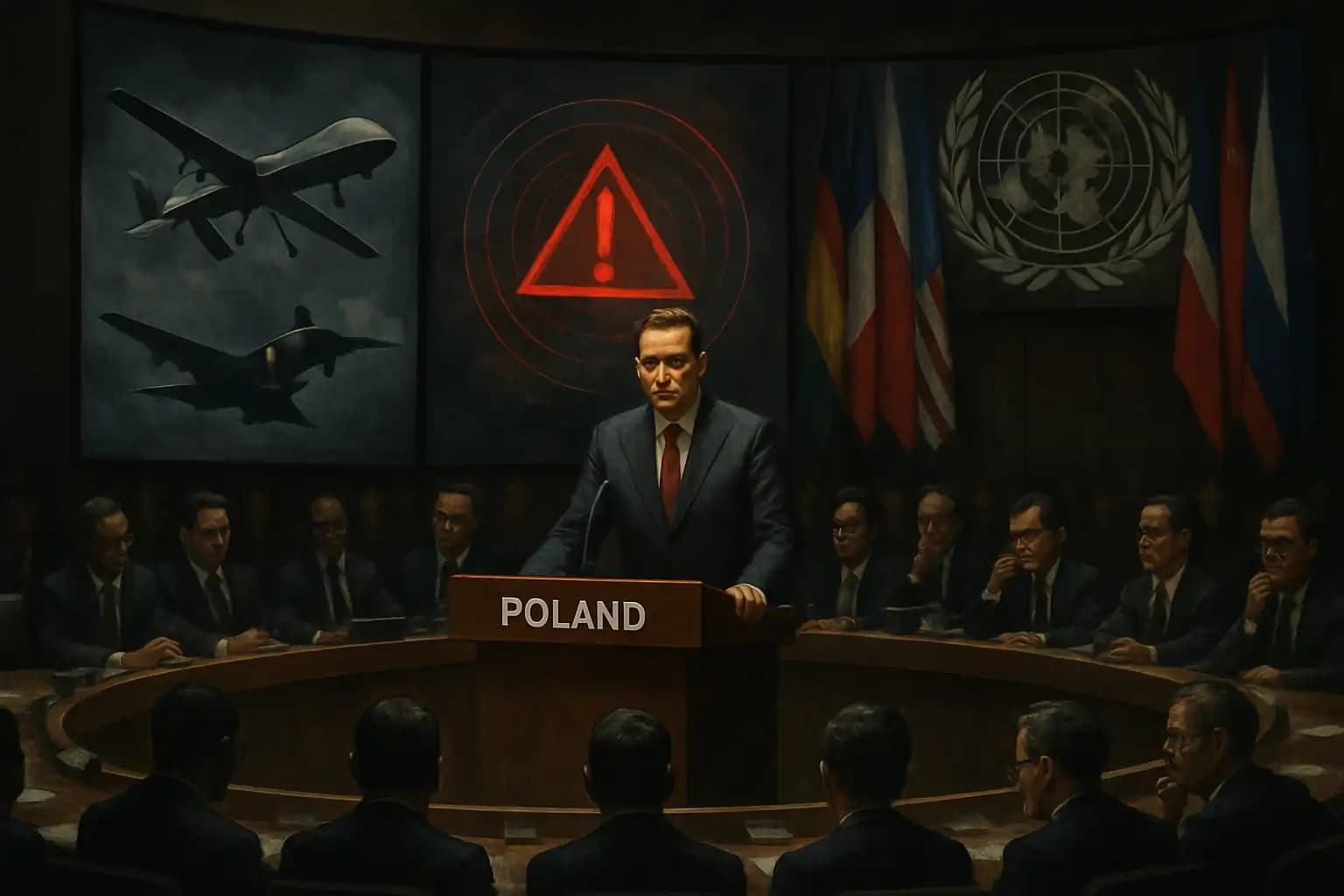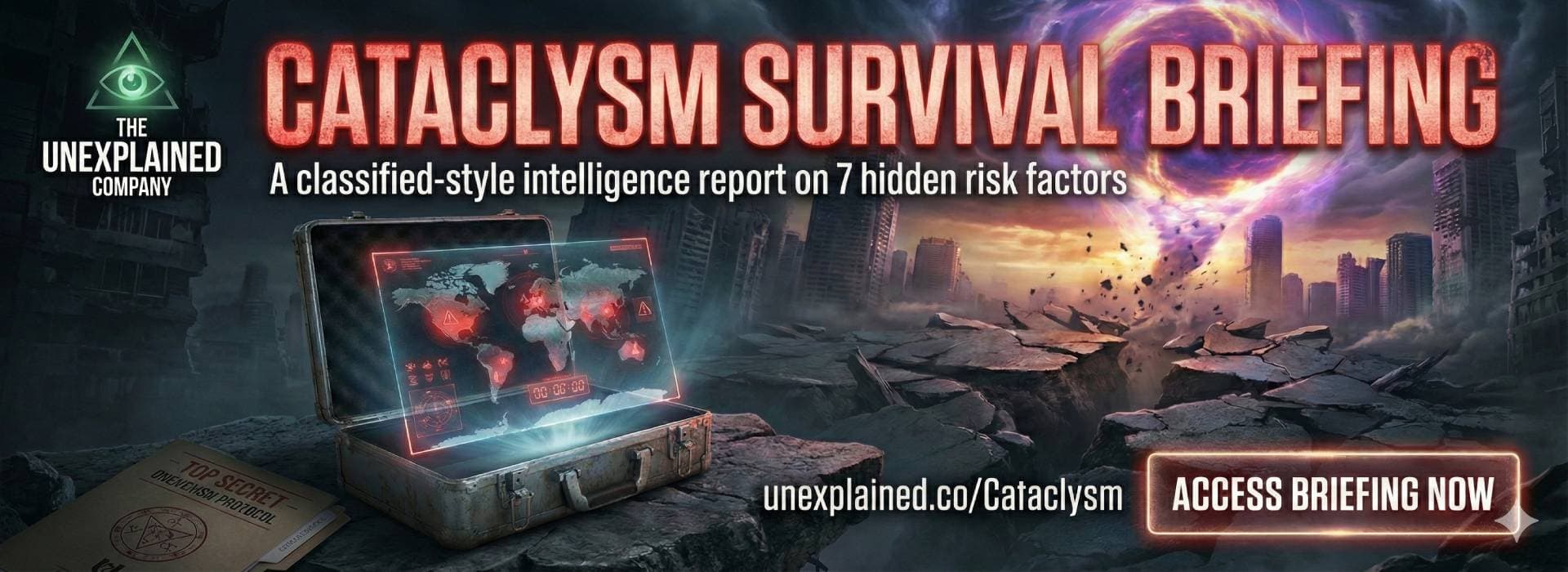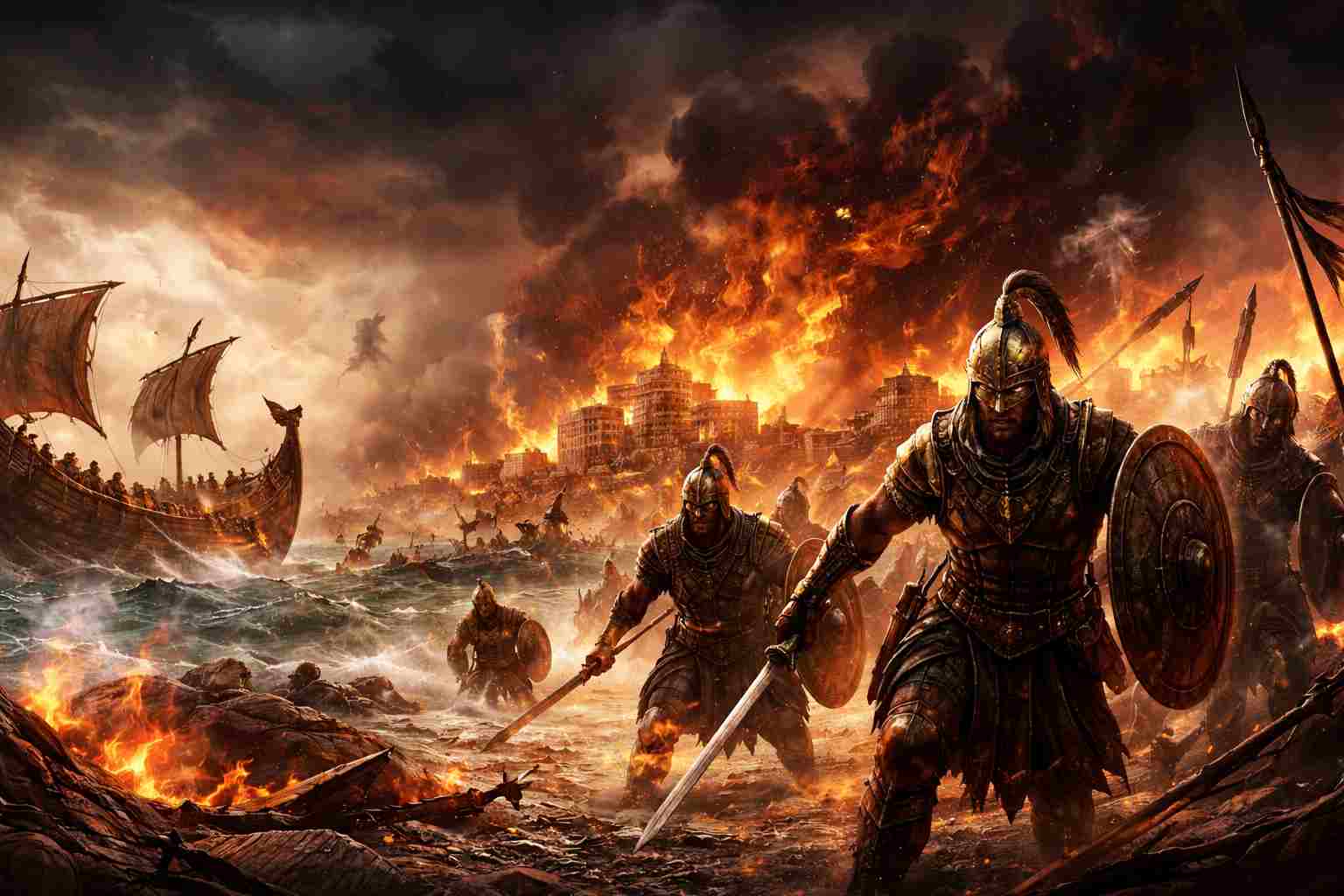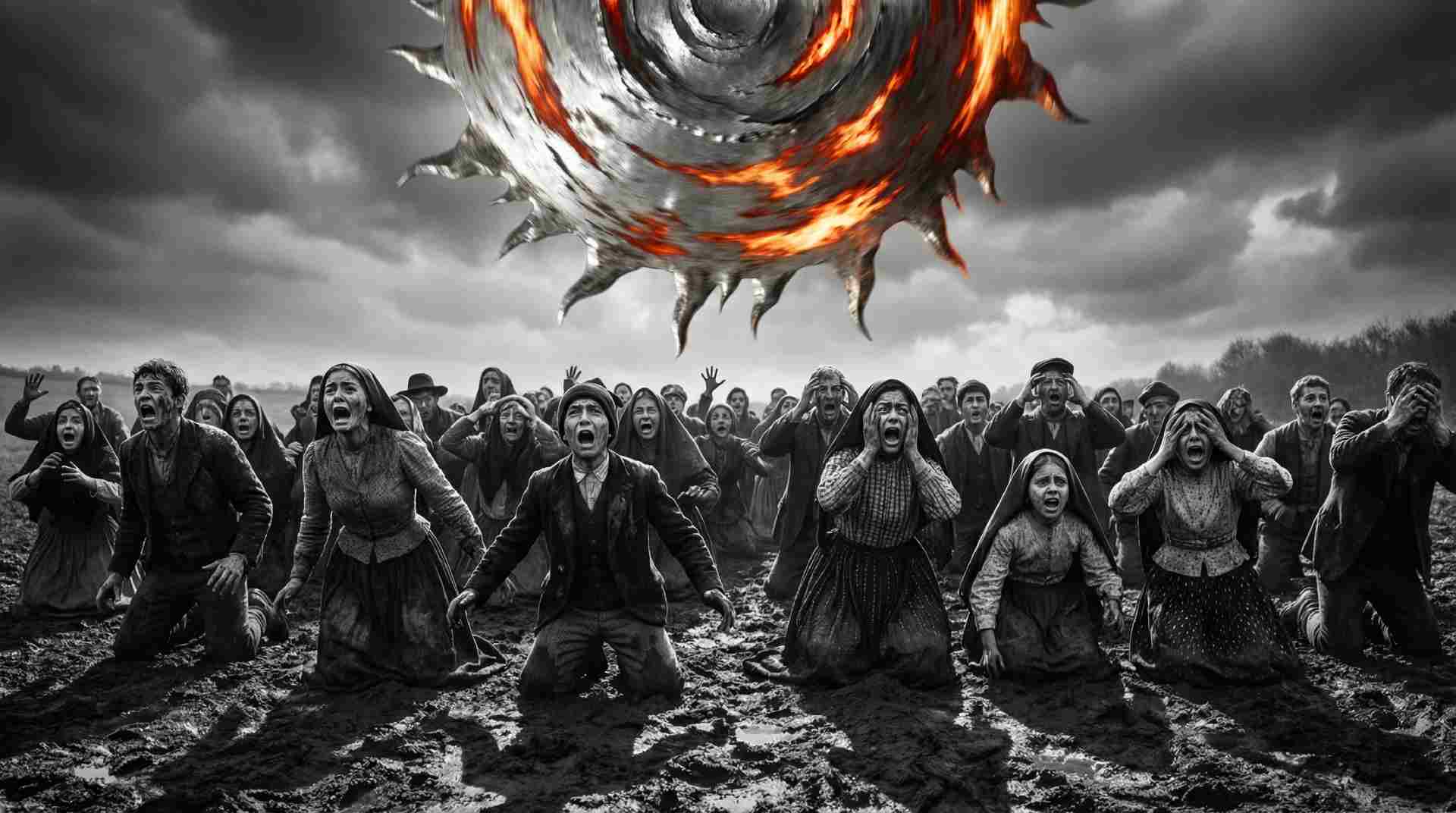When Russian drones crossed into Polish airspace, they tested borders and triggered alarms from Brussels to New York. This week, the UN Security Council convened in crisis mode as Poland’s ambassador condemned Moscow’s “hybrid warfare.” Europe now skates on the thinnest post-Cold War ice yet. The aftermath threatens to reshape security doctrine, rattle alliances, and push NATO closer to confrontation.
The incident follows escalating Russian provocations across Eastern Europe. Warsaw’s response was swift and firm. NATO supported Poland with air defenses and strong warnings. Western governments scrambled to determine if the incident reflected Moscow’s pattern of provocation—or foreshadowed future aggression. For a region scarred by past invasions, even a remote-controlled drone feels like the prelude to something larger.
Poland’s Stand at the United Nations: Demanding Action on Drone Attacks
In a move reminiscent of Cold War playbooks, Poland’s UN representative denounced Russia’s violation as “intolerable aggression.” As detailed in this BBC analysis of NATO’s response, NATO members rallied with air defense deployments. Poland has called for invoking Article 4—a rarely used consultation clause in the North Atlantic Treaty signaling a perceived threat to the alliance. The UN Security Council, familiar with deadlocked rhetoric, now becomes a platform for addressing global concerns about hybrid warfare, cyber incursions, and the fragility of European stability.
Voices inside Poland grow louder, demanding not just condemnation but accountability and tangible steps to deter further hostility. The country’s resolve at the UN has drawn global attention, following numerous confrontations on the NATO border and coinciding with broader pressures from Russian cyber, drone, and disinformation tactics. In this tense climate, every diplomatic gesture is amplified—hesitation may prove costly.
NATO’s Article 4: Collective Defense Tested
Moments like this test NATO’s foundational principles. Calls to activate Article 4 are not made lightly; the last time such language echoed across Europe, the world faced a potential world war. According to detailed coverage in Newsweek’s breakdown, NATO allies view these drone incursions as calculated moves with significant risks. Polish Prime Minister and foreign leaders have issued warnings—echoed in live reports from Europe’s front lines—that Europe now stands on the brink of open conflict, more than at any time since 1945.
This situation has vast implications for collective security. A single incident—whether a downed drone or intercepted communication—can trigger mobilization spirals, reminiscent of close calls that nearly sparked global wars. NATO’s commitment to mutual defense, forged in the darkest days of the last century, faces new challenges from rapidly evolving military technologies and Moscow’s probing of the alliance’s red lines.
Regional Stability and the Escalation Dilemma
As the region edges toward instability, escalation risks heighten. Drone warfare is merely the leading edge: the Kremlin has paired these tactics with cyber disruption, information warfare, and aggressive military posturing, creating complex challenges for Western planners. Experts warn in scenario analysis of WW3 tripwires that such hybrid pressures can quickly overwhelm political restraint, particularly as public sentiment, economic factors, and military assessments shift.
Poland finds itself both a target and a guardian. NATO’s response, debated internationally and showcased in recent Congressional hearings and military exercises, has redefined “collective defense.” Concurrently, domestic debates over readiness—spanning missile defense to civil shelters (referenced in disaster survival guides)—illustrate that each skirmish escalates anxiety and preparation.
What Comes Next: Tripwires, Diplomacy, and a Precarious Peace
No one expects Russian drones to single-handedly ignite World War 3, but experts recognize that history is shaped by accidents, misjudgments, and missed signals. As diplomacy strives to catch up, the alliance must balance deterrence with dialogue. The Security Council’s emergency meeting could either solidify a boundary—or reveal divisions adversaries may exploit.
One lesson remains clear: security in contemporary Europe hinges not only on hardware and doctrine but also on psychological resilience and political unity. As the world watches to see if confrontations escalate, analysts parse every diplomatic communiqué, military deployment, and emergency declaration for insights. The stakes? Nothing less than the balance of global power—and, as regular readers of Unexplained.co know, the unpredictable dynamics of modern crises themselves.





